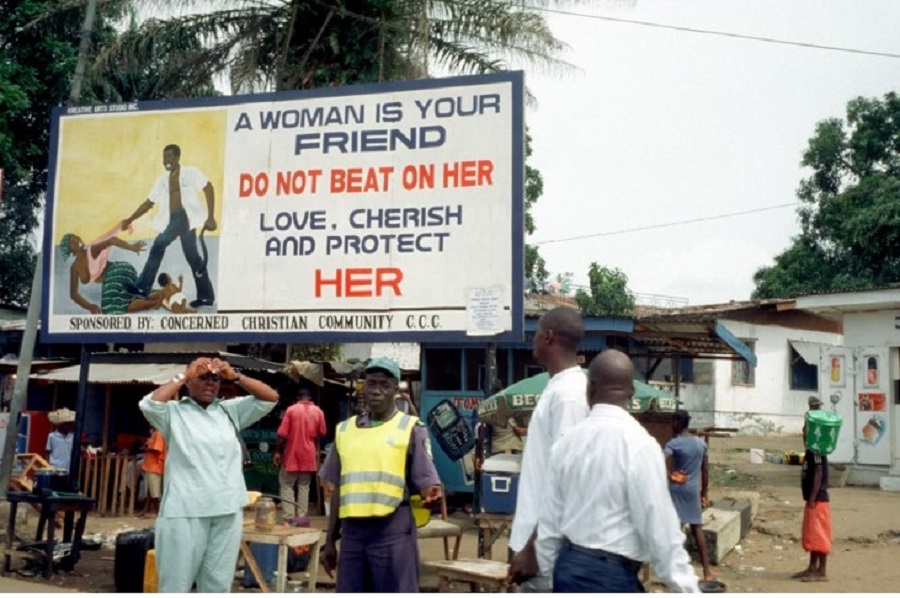Monthly Archives: November, 2017
DR. REBECCA SINGER’S INSIGHTS ON GENDER-BASED VIOLENCE AND THE ROLE OF PUBLIC HEALTH

Posted: November 30th, 2017
By: Amanda Wojan, MPH(c)
Gender-based violence, defined as violence against a person due to their gender, is a significant problem that affects countries around the globe. On November 15th, 2017 Dr. Rebecca Singer, UIC Nursing faculty, spoke at the School of Public Health regarding the impact of gender-based violence in various countries that she has worked in through Doctors without Borders, including the Democratic Republic of the Congo and Papua New Guinea. Many people tend to think that gender-based violence, such as sexual violence, is a “bigger problem” or more prevalent in developing countries. However, as Dr. Singer stated, this type of violence occurs everywhere, and is an ever present problem in the United States as well. Further, gender-based violence is often used interchangeably with talk of sexual violence/assault against women. Although this is a common type of gender-based violence, it encompasses much more, including violence against men (European Institute for Gender Equality).
Despite the broad scope of gender-based violence, we know that women are particularly vulnerable. According to the WHO Department of Gender, Women and Health, women and children are particularly affected by disaster situations, accounting for more than 75% of displaced persons. Subsequently, women are often left more vulnerable than men during disaster situations, as they face increased risk of reproductive and sexual health problems and increased rates of sexual and domestic violence. Dr. Singer discussed themes along these same lines throughout her lecture, stating that women are often expected to take on caretaker roles in times of disaster (such as at refugee camps), but face severe challenges in doing so. This vulnerability tends to emerge due to lack of resources (women may need to sell their bodies to provide food for their families) and a lack of infrastructure in place to promote safety.
Dr. Singer told stories of women who were beaten or sexually assaulted by partners, family members, and/or strangers. Many only had the Doctors’ Without Borders Clinics that she helped coordinate to receive the critical services they needed following an assault. These services included medication to prevent pregnancy and/or STI contraction (ex: post exposure prophylaxis), mental health counseling (when funds were available), and a medical certificate documenting the assault. Despite the important role these services play in helping survivors of gender-based violence, they often do not address the root cause of the problem: gender-based violence is a perpetual issue in many societies due to sexism and persistent gender disparities. So what can we do to improve this issue around the globe and promote a society that condemns gender-based violence? Dr. Singer named a few strategies that have emerged throughout her work:
❖ Educate perpetrators on what constitutes sexual assault and gender-based violence.
➢ Dr. Singer stated that in her experience, some perpetrators do not realize that what they are doing constitutes gender-based violence.
➢ Change the narrative! Give people alternatives to violence when they are having a disagreement with a partner.
❖ Incorporate wrap-around services for survivors of sexual assault that encompass mental health care and advocacy.
❖ Empower communities to engage in grassroots efforts.
➢ Let the communities lead!
➢ Evidence shows that grassroots efforts that work from the bottom up make meaningful and sustainable behavior change possible in communities (Mathie & Cunningham, 2003).
➢ Engage women as full and equal partners in community based action, and ensure that they are involved in the highest levels of planning and decision-making, particularly when it involves their own health and reproductive rights.
Dr. Singer emphasized that in many communities in which she worked the providers that worked at these support clinics were also survivors of gender-based violence themselves. Thus, they are the experts, positioned to provide powerful insight on how to combat this violence within their communities. As one clinician Dr. Singer worked with stated, “We are all survivors”. This is public health: harness the power of the people in the communities – they have the knowledge and the tools.
References
European Institute for Gender Equality. Retrieved from http://eige.europa.eu/gender-based-violence/what-is-gender-based-violence
Mathie, A., & Cunningham, G. (2003). From clients to citizens: Asset-based community development as a strategy for community-driven development. Development in practice, 13(5), 474-486.
Singer, R. (2017). Sexual Violence in Conflict and Non-conflict Settings: Challenges and Opportunity. [Lecture]. Retrieved on November 15th 2017.
WHO Department of Gender, Women, and Health. Retrieved from http://www.who.int/gender-equity-rights/en/